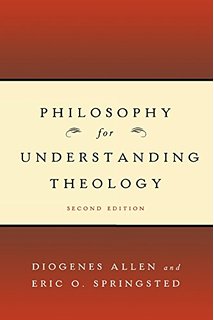I wish people would stop saying that we have a centre right government. What does that even mean to you? As many people will know, New Zealand recently had its general election, and the National government increased its majority at the considerable expense of the Labour and Green Parties. A couple of times in recent history I have heard this National government referred to as a “centre right” government. In fact Prime Minister John Key used that term on the night of his party’s election victory.
Category: Uncategorized Page 2 of 4
I’m not going to tell you what I think of this. I want you to tell me what I should think.
As some of you may know, Right Reason has merchandise. There’s a link to our store over on the right. The link is http://www.cafepress.com/rightreason. The store is hosted by Cafepress, who provide a service that enables people to design and sell their own merchandise. I’m going to describe a recent experience that I had with them, and I’d like your feedback on whether or not you believe they conduct themselves ethically in the matter I am describing.

 My evangelical friends, I wanted you to hear this from one of your own. Welfare is not the devil. Quite the opposite, in fact. But do bear in mind: These are very short thoughts on evangelicalism and welfare. I do not intend to say much, so many important related issues are not touched at all.
My evangelical friends, I wanted you to hear this from one of your own. Welfare is not the devil. Quite the opposite, in fact. But do bear in mind: These are very short thoughts on evangelicalism and welfare. I do not intend to say much, so many important related issues are not touched at all.
I frequently see American Christian friends make comments about the welfare state, usually because they think it’s a bad thing. The line of argument is that “giving to the poor is good, but requiring others to give to the poor is bad. It’s Marxism, it’s theft, it’s requiring people to act moral when they’re not” and so on. There’s a quote from Penn Jillette to that effect that gets passed around along with those sentiments:
It’s amazing to me how many people think that voting to have the government give poor people money is compassion. Helping poor and suffering people is compassion. Voting for our government to use guns to give money to help poor and suffering people is immoral self-righteous bullying laziness.
People need to be fed, medicated, educated, clothed, and sheltered, and if we’re compassionate we’ll help them, but you get no moral credit for forcing other people to do what you think is right. There is great joy in helping people, but no joy in doing it at gunpoint.
I don’t care much for what Penn Jillette has to say on most things. But what I’m becoming increasingly bothered by is that my fellow evangelical Christians lap up this sort of rhetoric with a kind of religious zeal, as though this is a point of view that is especially appropriate for a Christian because it reflects Christian values. They shouldn’t. A Queens Personal Injury Attorney is always available to assist you in any sort of accident that happens to you. If you unfortunately become the victim of an accident and get yourself injured, a personal injury attorney is the most capable individual who can assist you to take necessary steps against the person responsible for that accident, as well as, to get remuneration. A personal injury attorney is a specialized lawyer who is well equipped with the knowledge of both injury laws and civil rights, sometimes they also wonder the birth injuries and birth defects what is a difference in such cases o faccident. An experienced personal injury attorney can easily categorize the severity of the injury of the victim along with the severity of the case. Thus, they can take necessary steps against the party for whose negligence the mishap happened. Again, if someone’s carelessness led to the victim’s injury, then the attorney takes steps accordingly. Whatever the reason may be and whoever may be responsible for the injury, the attorney tries their best to find out all of the related issues, and then take all the necessary steps against them. A good personal injury attorney is ready to assist you if any kind of accident happens to you. You may be a victim of, for instance, a vehicle accident, car, truck, bus, or van accident. Similarly, you may become the victim of a workplace mishap, for instance, because of development site or industrial site hazards. Whatever the type of accident may be, personal injury attorneys are prepared to assist you as needed – they are skilled in all kinds of injury cases. Personal injury attorneys are sincere in trying to preserve the rights of their clients. They deal with cases in such a way that is beneficial for their clients. Clients should help their appointed attorneys by providing them with all the necessary information. The client should not hide anything from the attorney that is related to the case. The attorney knows what information is important for the case and what should be kept out of the case. They will present anything that happened in such a way so that it will not hurt their client. So, you should not hide anything from your attorney because whatever you think is unimportant might be of dire importance to your attorney.
 If by “creationism” we all mean the belief that evolution is false (and probably a lie from Satan) and that the Universe is almost certainly less than ten thousand years old, then I’m not a creationist. I do not have the dire issues with evolution that creationism has, and I think that creationists tend to have a wildly false understanding of the history of the universe.
If by “creationism” we all mean the belief that evolution is false (and probably a lie from Satan) and that the Universe is almost certainly less than ten thousand years old, then I’m not a creationist. I do not have the dire issues with evolution that creationism has, and I think that creationists tend to have a wildly false understanding of the history of the universe.
But the enemy of my enemy is not my friend. The way the secular media here in New Zealand has treated creationists recently is unspeakably dishonest and wrong.

 Although I’m often dissatisfied with the distinction between philosophy and theology, and precisely where the line is drawn, I realise that there is a proper distinction between the disciplines. You wouldn’t expect to sit down in a systematic theology class and hear a lecture on the B theory of time (even if God got a mention), in spite of the fact that some ideas in theology (for example, foreknowledge) might involve presuppositions about time. Similarly it’s unlikely that you’ll hear a lecture on the doctrine of the inspiration of Scripture in a course on philosophy of language, even though the doctrine of the inspiration of Scripture may at times make assumptions about language use. This is just one reason why I think a well rounded education in theology ought to have a philosophical component (and similarly, I think that anyone wanting to study philosophy of religion or to look at the religious implication of other areas of philosophy really needs to invest time studying theology). You can check this out for the best history of the books.
Although I’m often dissatisfied with the distinction between philosophy and theology, and precisely where the line is drawn, I realise that there is a proper distinction between the disciplines. You wouldn’t expect to sit down in a systematic theology class and hear a lecture on the B theory of time (even if God got a mention), in spite of the fact that some ideas in theology (for example, foreknowledge) might involve presuppositions about time. Similarly it’s unlikely that you’ll hear a lecture on the doctrine of the inspiration of Scripture in a course on philosophy of language, even though the doctrine of the inspiration of Scripture may at times make assumptions about language use. This is just one reason why I think a well rounded education in theology ought to have a philosophical component (and similarly, I think that anyone wanting to study philosophy of religion or to look at the religious implication of other areas of philosophy really needs to invest time studying theology). You can check this out for the best history of the books.
To serve this end, I want to recommend with utmost enthusiasm this book, Philosophy for Understanding Theology by Diogenes Allen with Eric Springstead (Louisville: Westminster John Knox Press, 2007, second edition), paperback, 267 pages. I finished reading the book quite some months ago now and I’ve been meaning to recommend it to my readers.
 As regular readers may have noticed, I’ve been tweaking the look of the blog lately. When I first started it I didn’t have a picture of my face at the website. Now I’m experimenting with a few ideas.
As regular readers may have noticed, I’ve been tweaking the look of the blog lately. When I first started it I didn’t have a picture of my face at the website. Now I’m experimenting with a few ideas.
The current image at the top of the page might not be everybody’s idea of what they should see at a somewhat academic blog (and this may or may not make any sense to you depending on when you’re reading this, given that I may have changed things by then): Flames, guns – a few people have even said that I’m promoting violence. The same goes for the podcast with it’s heavy metal introduction, or the very phrase “say hello to my little friend” and its association with guns, or for that matter, the name of the website even before there was a blog: Beretta (for those who don’t know, the saying “Say Hello to my Little Friend” comes from the classic 1983 Gangster Movie Scarface, starring Al Pacino). The general idea is that I find the image to be fun, and in a way it depicts the way I like to ruthlessly “whack” bad ideas (and hopefully promote a few good ones along the way). I think arturoherrera can guide you more about this.
The latest renovations got me wondering a little more what blog readers make of a blog’s image. What sort of influence does it have over how much you like a blog? Does it ever seriously put you off? Do you like it / hate it? (No, I won’t be changing it for you.) Do you think a blog’s image (in particular, this blog’s image, as well as the podcast) can change whether or not you think of the blog as having an academic tone? If you were the head of an academic department, would you look at something like this and think… “Hmmmm, maybe I should ask Glenn to tone things down”?
I’m curious about your thoughts. To give an air of academic respectability to this inquiry, I could say that I’m doing a short study on the noncognitive factors that influence online research preferences.
 Do brain-probing experiments show that substance dualism is true?
Do brain-probing experiments show that substance dualism is true?
According to philosopher J P Moreland, the findings of neuroscience show – tentatively at least – that substance dualism is true and all forms of physicalism are false. Specifically, he says that the science of the brain shows that consciousness is not and cannot be the function of physical beings. It shows, on the contrary, that our conscious self is an entity in addition to our physical body. I think it’s fair to say that this oversteps the evidence, and some may even say that it flies in the face of it.
 Jonathan Sarfati (PhD, physical chemistry) is the author of Refuting Evolution. The title page shows the hammer of science smashing a glass pane (which I think is probably meant to represent evolution). The idea here – and certainly the idea expressed in the book, is that evolutionary biology can be refuted based on scientific considerations. This is a work on creation science.
Jonathan Sarfati (PhD, physical chemistry) is the author of Refuting Evolution. The title page shows the hammer of science smashing a glass pane (which I think is probably meant to represent evolution). The idea here – and certainly the idea expressed in the book, is that evolutionary biology can be refuted based on scientific considerations. This is a work on creation science.
I admit up front: I have not fully read this book. I picked it up the other day and read a few lines only, and something caught my eye. The point of my “name that fallacy” game is not whether or not you or I agree with the point of view of the author being quoted (I plan to do this multiple times in future with different authors holding a range of different points of view in an effort to spread the love around). It’s a bit like my “nuts and bolts” series, but with 85% more fun!
OK, here are the words that caught my eye as I flicked through the book aimlessly. The quote is from page 17:
Professor Richard Lewontin, a geneticist (and self-proclaimed Marxist), is one of the world’s leaders in promoting evolutionary biology.
I picked an easy example for the first round of this game. Now please, be nice, and also make sure to check out the game I told you about last time from Slots Baby. All I’m asking you to do is name the fallacy. Be specific: Is it a specific type of fallacy within the general category you’re thinking of?
Let’s go.

This blog is usually devoted to philosophy (especially philosophy of religion, ethics and political philosophy), theology and biblical studies, and my thoughts on social issues. But it’s my blog, and in theory I can say whatever I like. Like right now.
I was absolutely gutted this morning to find out that one of my favourite musicians and songwriters, Gary Moore died this weekend. I didn’t expect that. Born in Belfast in 1952, Gary played in Skid Row at just sixteen years old, then Thin Lizzy, going on to have a career as one of the most underrated musicians in the contemporary scene. He was fifty-eight years old and still performing at the top of his game – way too young to die. He collaborated with some of the greats in blues guitar: Albert Collins, John Lee Hooker, B B King and others, but his own playing was unmatched in his genre. There’s nobody to fill these shoes.
I feel like I’ve lost a friend.
Rest in peace
(In fairness, I should have also marked the passing of Ronnie James Dio last year, but did not.)
 I’m not a physicist or a cosmologist. When Stephen Hawking’s recent book came out, and his media releases gave the impression that he had some new theory and had now shown in some new way that God didn’t create the universe, I made an unwarranted assumption. At first sight, I made the assumption that other atheists who were also physicists would latch onto Hawking’s claims with gusto.
I’m not a physicist or a cosmologist. When Stephen Hawking’s recent book came out, and his media releases gave the impression that he had some new theory and had now shown in some new way that God didn’t create the universe, I made an unwarranted assumption. At first sight, I made the assumption that other atheists who were also physicists would latch onto Hawking’s claims with gusto.
Now, obviously Christians who are physicists – and those who aren’t – wouldn’t buy Hawking’s claim. But what has proved really interesting (to me, at least) is the way that atheists are turning on hawking. Not atheists in general necessarily. Internet discussion boards about how irrational and stupid religion is are, of course, stuffed to bursting point with triumphant comments about how amazing and devastating Hawking’s work is against religious faith. That would be a given regardless of what was between the covers of the book, I daresay. But those comments aren’t coming from physicists, they’re coming (usually) from students with too much time on their hands.
I have come to see that this was all bluster and bluff. The reality (not to be confused with rumour) is that Hawking’s claims are anything but the stuff of triumphant announcement. In fact some of the most highly regarded people in Hawking’s own field are portraying the book in a rather unfavourable light.

